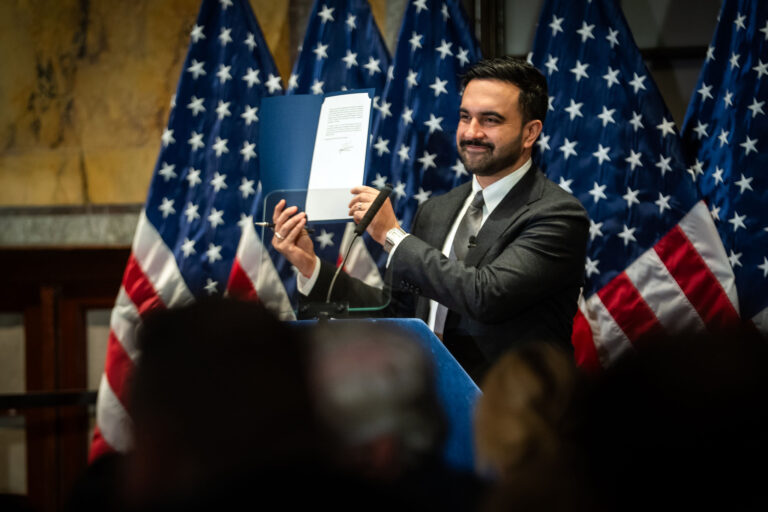Many are smiling, those who for years have been questioning why new companies have begun taking over bus routes in cities around the country, but Jerusalemites are still at the mercy of Egged and its monopoly.
Well, first came the light rail, which was an alternative for some, but now, according to the new Ministry of Transportation plan, the good old days for Egged in the capital will soon be nothing more than a memory.
A revolution in public transportation in Jerusalem. The Ministry of Transportation has formulated a revolutionary plan to dramatically upgrade and multiply public transportation in Jerusalem. This is part of the ministry’s plan to bring competition to all public bus transportation service providers in Israel.
Minister of Transportation Yisrael Katz noted that the revolutionary plan is intended to increase the use of public transportation and improve the service to the traveling public. “Improving public transportation in Israel is one of the main goals I have been promoting since I took office. This is a national goal that contributes to the economy, society, the environment and the quality of life. It reduces gaps and reduces the cost of living for all residents of Israel,” Katz added.
The new plan includes the redeployment of bus lines in the city, the doubling of the kilometers traveled in the Jerusalem area, the operation of new lines, including between the neighborhoods, increasing the frequency of high demand lines, extending the hours of operation, adding services to employment and demand centers, the operation of innovative transportation services, including flexible service as per the need, and a first, hundreds of electric buses.
The Ministry of Transport will publish two new tenders this week for the operation of dozens of municipal service lines of public transportation in Jerusalem. The tenders include the operation of 810 new buses, of which about 200 are electric buses, through private operators. These are about 80 bus lines, which have driven about 60 million passengers a year. These lines are currently operated exclusively by Egged.
The private operators that will win tenders will operate about 60% of public transportation activity in Jerusalem and the remaining 40% will continue to operate Egged. The urban buses operated by the private concessionaires will be new Euro 6 buses with low air pollution levels. Some of the lines will be serviced with the articulated buses with larger passenger capacity.
In the tenders, special emphasis is placed on the quality of the journey, optimal planning of the service lines, shorter travel time, increased frequency of lines and the creation of an optimal combination of various means of transportation, including connection to the light rail service. The new lines will enable the boarding of all bus doors without having to pass through the driver. In the new buses, the cab will be separated from the passengers, in order to protect the drivers’ safety, similar to the light rail.
In both tenders, the franchisees will be required to integrate a wireless network and USB plugs for charging and electronic screens inside the buses, which will update the public with current information on the route of the line. Along the route stations, electronic information signs will be posted that will inform the public in real time about the bus arrival times. At the same time, the Ministry of Transport will build new bus terminals and upgrade the parking sheds at the stations.
The new tenders relate to the future effects of operating a light rail network, new roads and new construction in the city. Within these neighborhoods, the new and expanding neighborhoods will be filled with new lines.
In addition, new cross-neighborhood lines will be introduced, which will improve the connection between the neighborhoods. For example, a line connecting the Talpiot-East neighborhood, the Tachanah Rishona compound, Katamon, Shaare Zedek and Givat Shaul; A connecting line between Mount Scopus, Rechavia and Givat Ram in the direction of the light train station on Mount Herzl; and a link between Givat Shaul, the government complex, and the city center in the direction of Mamilla.
The main activity hours of the city will be extended for the first time until 2:30AM. In addition, two alternative buses will be operated for the light rail and will be operated on Thursday nights and motzei Shabbos and on designated vacation dates for the city’s entertainment centers. This is in order to strengthen the accessibility of Jerusalem residents living in the city’s neighborhoods to the train station, the city center, recreation centers and hospitals.
In addition, direct and fast lines will be operated from a neighborhood throughout the city, including Chomat Shmuel, Gilo, East Talpiot Mizrach, Katamon, southwestern neighborhoods and Pisgat Ze’ev via the Begin route to the employment areas in Har Chotzvim and Givat Shaul. For example, new lines will be operated from the Ramot neighborhood to the central bus station, the employment area in Givat Shaul, the university campus and Hadassah Mount Scopus Hospital; In addition, a new fast line will be operated from Givat Ram and the Central Bus Station to Mount Scopus; Feed lines from Pisgat Ze’ev, N’vei Yaakov and Ramat Shlomo for light rail stations; and a direct line from the light rail to the Kosel, which will operate on the route around the Old City including a station in the Goren Plaza. Service lines 1, 3 and 38 leading to the Kosel will also provide increased service.
(YWN Israel Desk – Jerusalem)











